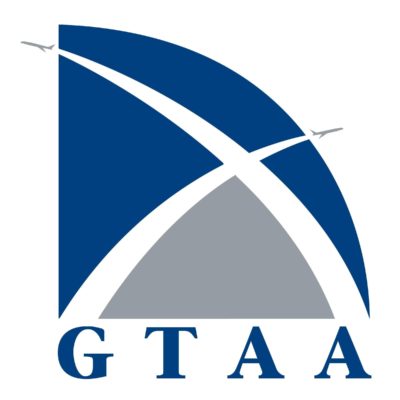TORONTO, March 20, 2019 /CNW/ – The Greater Toronto Airports Authority (“GTAA”) today reported its financial and operating results for the fiscal year ended December 31, 2018. A total of 49.5 million passengers travelled through Toronto Pearson during 2018, an increase of 2.4 million passengers over 2017. This growth reflects increased capacity of aircraft and new international routes, the economic strength of the Greater Toronto Region, and the role of Toronto – Lester B. Pearson International Airport (“Toronto Pearson”) as Canada’s largest airport and North America’s second busiest airport in terms of international passengers.

“As Toronto Pearson continues to evolve into one of the world’s leading mega hubs, we are focused on careful planning and execution to ensure that the country and region can continue to count on Toronto Pearson for trade, tourism and economic growth. In 2018, these efforts were again reflected in passenger traffic growth of 5.0 per cent or higher for the fifth year in a row to a record 49.5 million passengers. Toronto Pearson is the second-largest international passenger airport in North America,” said Howard Eng, President and Chief Executive Officer, Greater Toronto Airports Authority. “In addition, we were honoured to be recognized by Airports Council International’s Airport Service Quality program, for the second year in a row, as the Best Large Airport in North America for airports serving greater than 40 million passengers annually. Additionally, Toronto Pearson’s score of 4.45 is the highest passenger satisfaction score among airports serving greater than 40 million passengers annually in Africa, North and South America, Australia and Europe, highlighting our ongoing drive to respond to our passengers’ needs.”
Additional frequencies on existing routes, upgauging of average aircraft size on existing frequencies, and the addition of new routes by existing air carriers have driven passenger growth in 2018. Passenger activity in the international sector increased by 2.1 million passengers reflecting 6.7 per cent growth and the domestic sector increased by approximately 300,000 passengers reflecting 2.0 per cent growth. In addition, the cargo tonnage transported increased from 538,900 metric tonnes in 2017 to 560,059 metric tonnes in 2018, an increase of 3.8 per cent.
The GTAA recorded net income of $113.7 million during 2018 compared to $112.2 million in 2017 (adjusted net income, excluding one-time adjustments, was $139.8 million in 2018 compared to $112.2 million in 2017). Net income was negatively impacted in the first quarter of 2018 by the early retirement of debt charge of $28.7 million from the early redemption of Series 2009-1 Medium Term Notes. The GTAA has reduced its gross debt per enplaned passenger by 3.8 per cent to $258 and net debt per enplaned passenger by 2.8 per cent to $241, when compared to 2017.
During 2018, the GTAA reported total revenues of $1.5 billion, representing an increase of $84.0 million over 2017. The continued growth in revenues was a reflection of strong annual passenger growth and corresponding increases in commercial revenues. During 2018, the GTAA’s commercial revenues increased $51.3 million to $501.9 million, when compared to 2017. In addition to the high passenger growth, these results are due to the opening of 26 new retail stores, restaurant and beverage establishments and to the revenues generated by the Airway Centre Inc.
Total expenses reported during 2018 for the GTAA were $1.4 billion, representing an increase of $82.5 million over 2017. Ground rent and payments-in-lieu of real property taxes (“PILT”) together comprised approximately 19.7 per cent of the GTAA’s operating expenses or 15.0 per cent of total expenses in 2018. During 2018, the GTAA incurred higher expenditures related to the inclusion of the Airway Centre Inc.’s costs and the continued investments in corporate-wide initiatives in support of the GTAA’s vision to be the best airport in the world. As part of this initiative, the GTAA has been rapidly increasing expenditures (excludes amortization) to support improved passenger and baggage flow in recent years, with an increase of approximately $5.9 million in 2018 as compared to 2017. Operating costs (including amortization) were incurred by the GTAA in support of government agencies to improve passenger flow of $38.9 million, an increase of $3.6 million or 10.2 per cent over 2017. These included direct and indirect operating costs to enhance services provided by the Canadian Air Transport Security Authority (“CATSA”), U.S. Customs and Border Protection (“USCBP”) and Canada Border Services Agency (“CBSA”).
Earnings before interest and financing costs and amortization (“EBITDA”) during 2018 were $720.6 million, representing an increase of 2.4 per cent over 2017. Earnings before interest and financing costs (“EBIT”) during 2018 were $443.6 million, representing an increase of 1.0 per cent over 2017.
The GTAA’s 2018 financial results are discussed in more detail in the GTAA’s Consolidated Financial Statements for the years ended December 31, 2018 and 2017 and Management’s Discussion and Analysis for the year ended December 31, 2018, which are available at www.torontopearson.com and on the Canadian Securities Administrators’ website at www.sedar.com.





